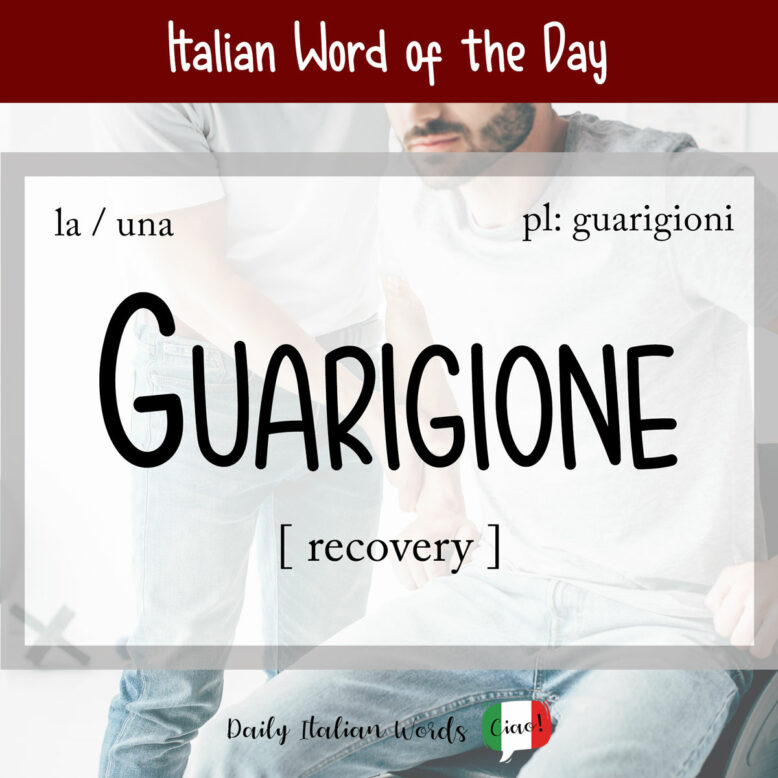The Italian word guarigione (feminine, plural: guarigioni), which comes from the verb guarire (to recover / to heal), describes the return to a normal state of health following an illness or injury. It is usually translated as recovery but can also mean curing or healing.

You can describe a person’s recovery in a number of ways including:
- una perfetta guarigione = a perfect recovery
- una completa guarigione = a complete recovery
- una guarigione facile / difficile = an easy / difficult recovery
- una pronta guarigione = a speedy recovery
- una guarigione lenta = a slow recovery
- una guarigione miracolosa = a miraculous recovery
If you know someone who has been unwell or hospitalised, the kindest message you can send their way is Get well soon! which in Italian translates as Buona guarigione! (lit: Good recovery!) An alternative spin on this expression is Guarisci presto! which uses the verb guarire instead.
Buona guarigione! / Guarisci presto!
Get well soon!

If you are writing a “get well soon” card, you can also use the longer expression:
Ti auguro una pronta guarigione! (informal)
Le auguro una pronta guarigione! (formal)
Tanti auguri di pronta guarigione!
I wish you a speedy recovery!
In order to say a ‘recovery from something’, you need to use the word guarigione + the preposition da (from). For example, a full recovery from cancer would translate as una completa guarigione dal cancro.
Two useful expressions are essere in via di guarigione which means to be on the mend and ottenere la guarigione which means to get better.

Fare guarigione (lit: to make cure / healing) is an expression used to describe a person’s ability to cure someone, such as a doctor who cures a patient. Dare la guarigione means to give the cure / the remedy.
Tanti anni fa, quel medico fece molte guarigioni miracolose.
Years ago, that doctor performed many miraculous cures.
Heather Broster is a graduate with honours in linguistics from the University of Western Ontario. She is an aspiring polyglot, proficient in English and Italian, as well as Japanese, Welsh, and French to varying degrees of fluency. Originally from Toronto, Heather has resided in various countries, notably Italy for a period of six years. Her primary focus lies in the fields of language acquisition, education, and bilingual instruction.


